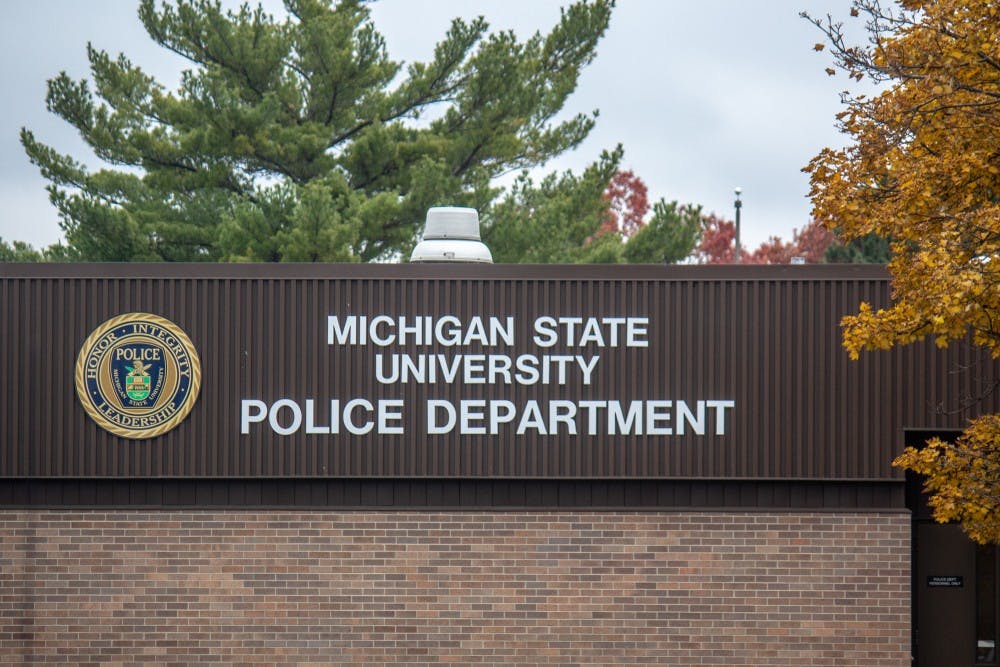Reporting sexual misconduct in any form, whether for yourself or someone else, can be a confusing task. The first step in making the decision is understanding the process of criminal investigations, your role and how to go about reporting sexual misconduct.
Reporting to authorities
There are two ways the authorities can be notified about a case of sexual misconduct.
First, an individual may call the police department in order to file a police report.
“We’ll send a police officer out to their house, or wherever they want to meet,” East Lansing Police Department, or ELPD, Deputy Chief Steve Gonzalez said.
On the other hand, if an individual goes to the hospital to receive a medical examination after an instance of sexual violence, authorities will be notified.
Hospitals are mandatory reporters, which means they are required to notify police about cases of sexual violence.
All Michigan State employees are mandatory reporters and are obligated to notify the Office of Institutional Equity, or OIE, or MSU Police, according to OIE’s webpage.
The only MSU employees not required to report instances of sexual misconduct are those from MSU Safe Place, Olin Health Center, University Ombudsperson, MSU Employee Assistance Program, MSU Counseling and Psychiatric Services, MSU Sexual Assault Crisis Intervention Team, MSU Sexual Assault Program, MSU Prevention, Outreach and Education Department and the 24-hour Sexual Assault Crisis Line.
However, the reports do not require an individual to follow through with a police report if they don’t want to, Gonzalez said.
If you or someone you know would like to be medically treated without filing a police report, they will not be forced to.
The police officer or officers who are notified will arrive to the hospital and offer the opportunity to file a report, and if the individual does not want to, they will be given the proper contact information in case they change their mind at any time, Gonzalez said.
“I’ve found personally that people are a lot more comfortable when they’re at their home,” Gonzalez said.
The comfort of meeting with the police at an individual’s home allows for a friend or family member to be present for support.
Services for survivors are available for comfort and assistance through nonprofit advocates.
Gonzalez said they can help an individual process what the police need to know for a thorough legal investigation and explain why, which can alleviate stress from reporting an instance of sexual violence.
The investigation
After a report is filed, the police will open an investigation.
An individual may contact East Lansing or MSU authorities, and the police will determine where the incident occurred in order to allocate the investigation to the proper department, Gonzalez said.
Though ELPD might have jurisdiction over the investigation involving a student or faculty member, they will notify campus police so university-specific actions may be taken.
Support student media!
Please consider donating to The State News and help fund the future of journalism.
“We take these situations very seriously,” MSUPD Capt. Doug Monette said. “We investigate them thoroughly.”
MSUPD provides campus and community-based resources for support during an investigation as well, Monette said.
An investigation into sexual violence is multifaceted and thorough, therefore the time it takes for the police to complete an investigation is case sensitive.
“It’s hard to put a typical timeline on an investigation because some can be very involved where there’s multiple witnesses to follow up with,” Gonzalez said.
Other factors that increase the time the police take in investigating a case of sexual misconduct include the presence of a suspect’s attorneys and physical evidence gathered during a medical exam, Gonzalez said.
The presence of a suspect’s attorney might slow down the investigation because this might inhibit the police from speaking to the suspect themselves, Gonzalez said.
Physical evidence recorded during a medical exam might slow down an investigation due to the time it takes for the State Police Crime Lab to process it.
Cases where the two parties are known to each other, as in the survivor and perpetrator, have quicker timelines for investigation, Gonzalez said.
If there is not a suspect and physical evidence is necessary to proceed during an investigation, lab results can take anywhere from a year to 18 months, Gonzalez said.
ELPD Detective Traci Sperry exclusively works on sexual assault investigations.
“We have a backup detective that is trained in how to work these as well,” Gonzalez said.
Caseload is a factor in how long an investigation might take, but ELPD has multiple detectives dedicated to sexual assault cases.
The investigation to prosecutors
Upon the completion of an investigation, the case will be turned over to local prosecutors in order to determine if charges will be issued against the suspect. If charges are issued, this will begin the process of going to court for the instance of sexual misconduct.
Discussion
Share and discuss “How to report sexual misconduct: A step-by-step guide on disclosing to police” on social media.








